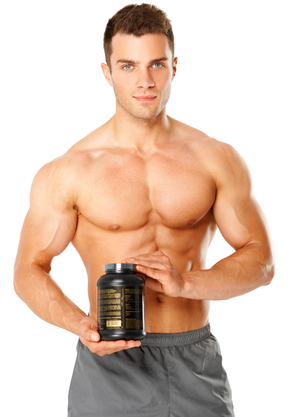It’s a Jungle Out There
Author: Dr. Stephen Chaney
 It’s a jungle out there. You probably already know that there are some bad players in the food supplement industry. There are companies that make products that don’t work, products that haven’t been tested for safety and efficacy, products are contaminated, and even products that are dangerous. There are some companies that even make products that contain dangerous drugs – drugs that can kill you.
It’s a jungle out there. You probably already know that there are some bad players in the food supplement industry. There are companies that make products that don’t work, products that haven’t been tested for safety and efficacy, products are contaminated, and even products that are dangerous. There are some companies that even make products that contain dangerous drugs – drugs that can kill you.
Are Dietary Supplements Safe?
A recent report (Harel et al, JAMA Internal Medicine, doi: 10.1001/jamaintermed.2013.379) states that between January of 2004 and December of 2012 there were 465 drugs that were subject to a class I recall by the FDA. A class I recall is for cases in which there is a reasonable probability that use of or exposure to a product will cause serious adverse health consequences or death.
Now here’s the scary part: 98% of those recalls were for dietary supplements. The worst offenders were sexual enhancement products (40%), bodybuilding products (31%) and weight loss products (27%). And these weren’t all foreign-made products. 74% were manufactured in the United States.
[Note: If you are good at math, you will have noticed that leaves 0% for recalls of all other dietary supplements].
It’s A Jungle Out There
A perfect example of this scandalous behavior in certain segments of the food supplement industry is the DMAA saga. You may recall that I mentioned this in a recent “Health Tips From the Professor” titled “Are Fat Burning Supplements Safe?” Let me give you a very brief overview of that report, followed by the latest developments.
DMAA is short for dimethylamylamine. It is a stimulant that is chemically very similar to the ephedrine class of chemicals. The less reputable supplement manufacturers often add stimulants to their weight loss and bodybuilding products.
Stimulants do raise metabolic rate so they help with weight loss. They have no effect on athletic performance, but the athletes often feel like they have more energy – so they are popular in bodybuilding products. The problem is that many stimulants are dangerous. They can increase heart rate, cause arrhythmia, and they can kill people.
Because supplements with ephedra, another close realative of ephedrine, killed a bunch of people, the FDA forced supplement manufacturers to remove it from their products a number of years ago. You might have thought that the manufacturers would decide that adding stimulants to their products wasn’t a good idea. But no, they just substituted DMAA for ephedra. And guess what? The inevitable happened again. Two US soldiers died following DMAA usage in 2012.
The DMAA Scandal
The story really gets scandalous from here. The military ordered the removal of all DMAA containing products from U.S. Army and Air Force exchanges, but the FDA did not act. So what happened? Just about what you’d expect. Companies like GNC pulled their DMAA containing products from military bases, but continued to sell them from all their other stores.
Several months later the FDA finally acted. It sent a warning letter to all US manufacturers of DMAA containing products asking them to stop using DMAA as an ingredient in their supplements. All of the companies agreed to stop using it except one – USPLabs.
USPLabs claimed that DMAA could be found in geranium, which is an approved herbal ingredient, so they continued to use it. And GNC continued to sell their DMAA containing products in all its nonmilitary stores.
Finally, on April 11, 2013 the FDA issued a strongly worded warning about DMAA. The FDA warning said that by then there had been 86 reports of illnesses and deaths associated with supplements containing DMAA, and the preponderance of scientific evidence showed that DMAA was not a natural constituent of geranium.
The FDA said that they would take all possible means to get DMAA containing products off the market. A cynic might point out that the FDA did not act until the night before a high profile exposé on DMAA was scheduled to appear on NBC.
Finally, USPLabs threw in the towel and said that they would reformulate their DMAA containing products. A cynic might suspect that they will just substitute yet another stimulant for DMAA.
And, what about GNC? They said “It [DMAA] will be positioned out of stores, probably over the next five or six months as we sell existing inventory”. You don’t need a cynic to interpret that statement.
It wasn’t until the FDA raided their warehouses and removed all remaining DMAA-containing products that the DMAA story was over.
So what’s the bottom line for you? It is a jungle out there. Don’t fall for the hype and fancy claims. Do your homework, and stick with a company you can trust.
The Bottom Line:
1) When you hear headlines about dietary supplements killing people, you should realize that the bad players are found in only 3 types of dietary supplements – sexual enhancement products, bodybuilding products and weight loss products.
2) Just for perspective you should contrast any concerns about the safety of dietary supplements with:
- The more than 35,000 deaths/year from properly prescribed medications…and…
- The 8,000 deaths/year in US hospitals due to medication errors (Journal of General Internal Medicine, 25: 774-779, 2010)
3) When choosing supplements in that class use your common sense. Avoid those supplements promising magical gains in sexual prowess, increased muscle mass or weight loss.
4) Stick with a supplement company you can trust – one that is committed to only making supplements of proven benefit, and never making supplements that could cause any harm.
These statements have not been evaluated by the Food and Drug Administration. This information is not intended to diagnose, treat, cure or prevent any disease.

